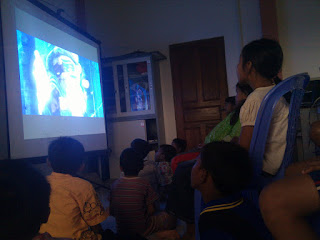Last Friday was my last day in the KKEV village. After spending three months in the centre I had to leave my children. It was by far one of the hardest thing I had to do and I told myself that I can leave only if I come back to visit them next year.
My last week with them was touching as they made flower crowns for me everyday and they were always close to me in the lunch breaks. They made drawings for me, we played volleyball, we visited a vocational centre, we took lots of pictures..
I really felt like they were like my family and the night after I left I made a book for them and a calendar with some of our pictures. I didn't want them to forget me and I also wanted them to remember everything we learned together.
Here you can see the book:
And the calendar for 2012:
I you wish to receive the documents in full resolution please email me at: druga.stefania[@]gmail.com.
My last week with them was touching as they made flower crowns for me everyday and they were always close to me in the lunch breaks. They made drawings for me, we played volleyball, we visited a vocational centre, we took lots of pictures..
I really felt like they were like my family and the night after I left I made a book for them and a calendar with some of our pictures. I didn't want them to forget me and I also wanted them to remember everything we learned together.
Here you can see the book:
And the calendar for 2012:
I you wish to receive the documents in full resolution please email me at: druga.stefania[@]gmail.com.


















